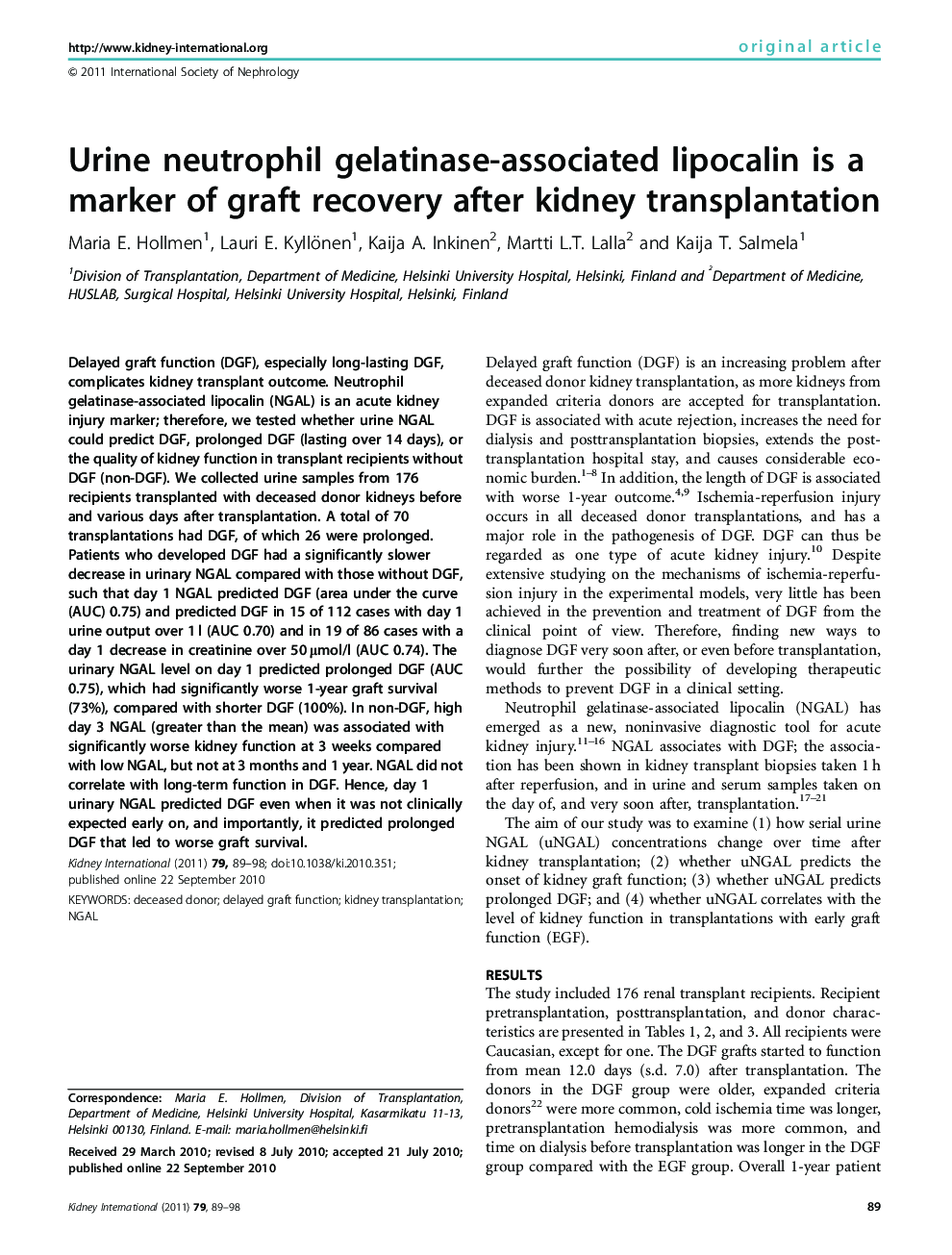| Article ID | Journal | Published Year | Pages | File Type |
|---|---|---|---|---|
| 3883264 | Kidney International | 2011 | 10 Pages |
Delayed graft function (DGF), especially long-lasting DGF, complicates kidney transplant outcome. Neutrophil gelatinase-associated lipocalin (NGAL) is an acute kidney injury marker; therefore, we tested whether urine NGAL could predict DGF, prolonged DGF (lasting over 14 days), or the quality of kidney function in transplant recipients without DGF (non-DGF). We collected urine samples from 176 recipients transplanted with deceased donor kidneys before and various days after transplantation. A total of 70 transplantations had DGF, of which 26 were prolonged. Patients who developed DGF had a significantly slower decrease in urinary NGAL compared with those without DGF, such that day 1 NGAL predicted DGF (area under the curve (AUC) 0.75) and predicted DGF in 15 of 112 cases with day 1 urine output over 1 l (AUC 0.70) and in 19 of 86 cases with a day 1 decrease in creatinine over 50 μmol/l (AUC 0.74). The urinary NGAL level on day 1 predicted prolonged DGF (AUC 0.75), which had significantly worse 1-year graft survival (73%), compared with shorter DGF (100%). In non-DGF, high day 3 NGAL (greater than the mean) was associated with significantly worse kidney function at 3 weeks compared with low NGAL, but not at 3 months and 1 year. NGAL did not correlate with long-term function in DGF. Hence, day 1 urinary NGAL predicted DGF even when it was not clinically expected early on, and importantly, it predicted prolonged DGF that led to worse graft survival.
